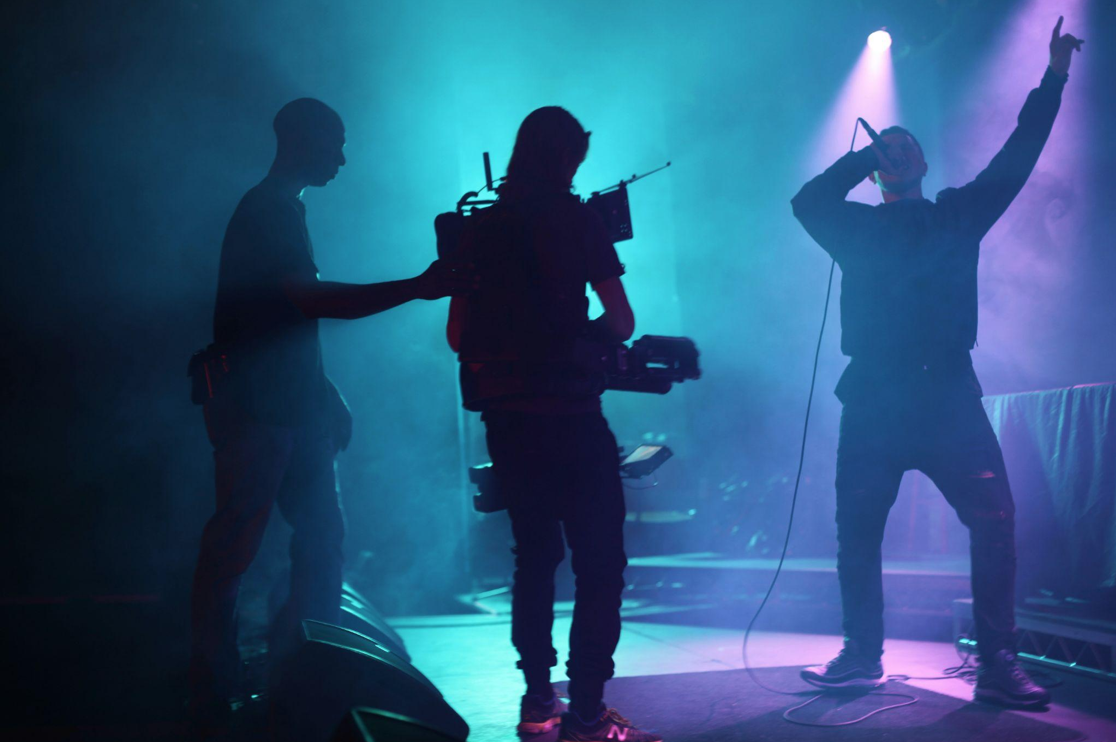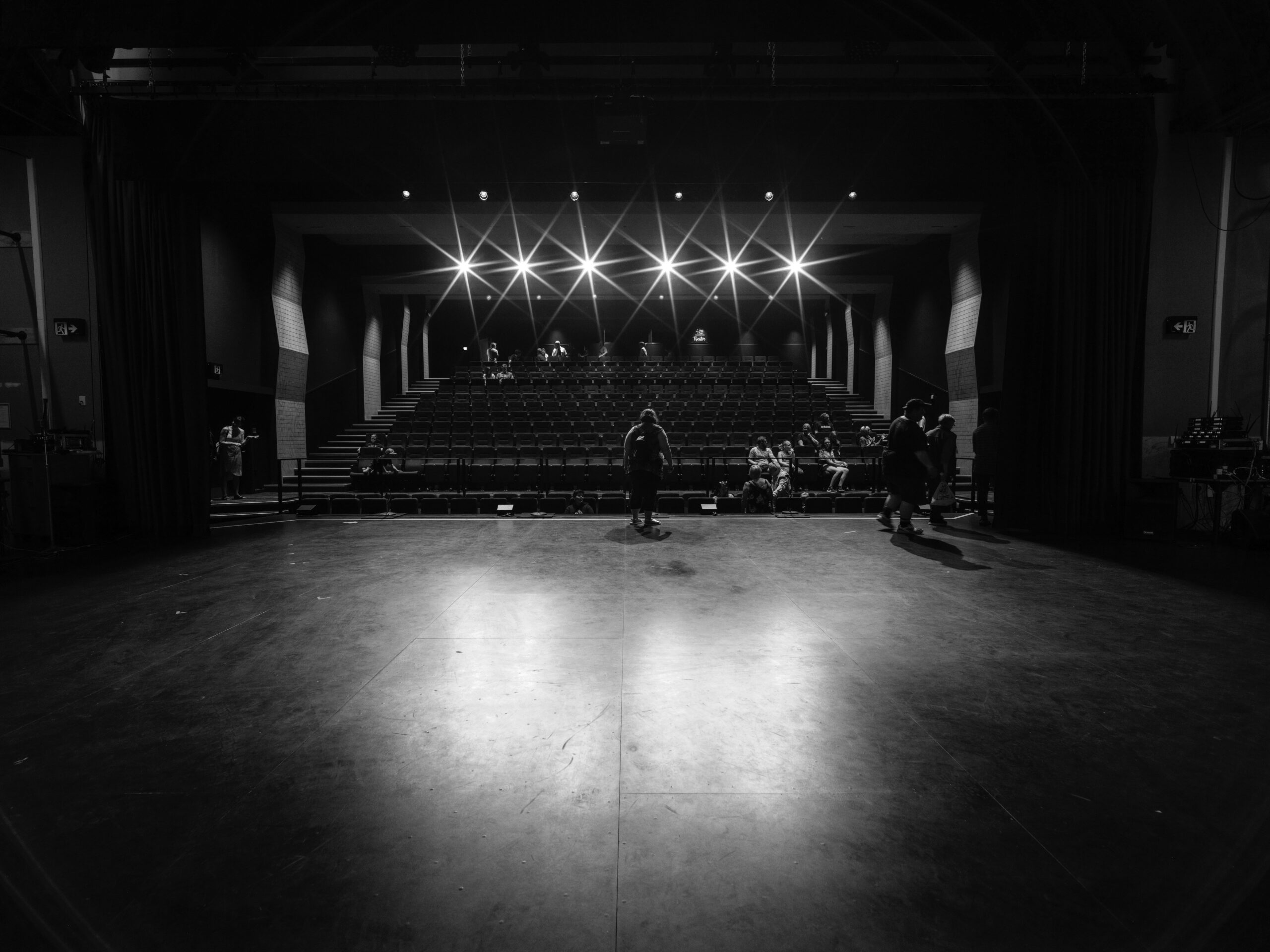
On August 18, 2014 Taylor Swift released her single “Shake It Off.” This song debuted at number one on the US Billboard Hot 100 chart, was the number 13 song on the Billboard year end chart, and was certified 9 times platinum by the RIAA.[1] This inescapable ear worm dominated the radio and earned Swift a People’s Choice award for “Favorite song” as well as three Grammy nominations for ‘Record of the Year’, ‘Song of the Year’, and ‘Best Pop Performance’.[2]
The song itself is bubbly and catchy. Beginning with an up-tempo backbeat, Swift’s voice quickly cuts through as she reflects on the negative gossip circulated by her critics. Swift continues that ultimately her critic’s opinions don’t matter, and that she happily ignores this negativity by “shaking it off.” In truth, the entire song’s premise of ignoring one’s critics and letting go of one’s inhibitions is succinctly understood by the fist four lines of the chorus:
“’Cause the players gonna play, play, play, play, play
And the haters gonna hate, hate, hate, hate, hate
Baby, I’m just gonna shake, shake, shake, shake, shake
I shake it off, I shake it off”[3]
However, in the world of Copyright law, some criticism, it would seem, is not so easy to ‘shake off’.
This criticism comes from songwriters Sean Hall and Nathan Butler who allege that Swift’s megahit “Shake It Off” infringed on the copyright to their song “Playas Gon’ Play.”[4]
If you are unfamiliar with “Playas Gon’ Play,” you are not alone. This single, recorded by the American girl-group 3LW, was released on May 1, 2001.[5] Compared to the indisputable success of “Shake It Off”, “Playas Gon’ Play” was received with far less aplomb, reaching only the number 81 spot on the US Billboard Hot 100 Chart.[6] After its brief chart life, this R&B song faded into relative obscurity until 2014, when writers Hall and Butler noticed some similarities between their song and Swift’s.
Plaintiffs Hall and Butler allege that Swift had stolen their copyrighted lyrics and had appropriated them into her own song without first obtaining their permission.[7]
In truth, this is a dispute over four simple lyrics from “Playas Gon’ Play”:
“Playas, they gonna play / And haters, they gonna hate.”[8]
On its face, the similarities between the two sets of lyrics are obvious, they’re nearly identical phrases. However, despite the apparent similarities between the two songs, courts are having difficulty in deciding if this is actually a case of copyright infringement or if what Swift copied was a non-protectable idea.
To determine if there was in fact infringement, Courts use what is known as the extrinsic similarity test. [9] The extrinsic test breaks down the two different songs into their protectable elements. These protectable elements are features that are original enough to merit copyright protection. As explained by the Supreme Court, “[o]riginal, as the term is used in copyright, means only that the work was independently created by the author and that it possesses at least some minimal degree of creativity.”[10] For example, elements like tempo, rhythm, lyrics, or genre constitute the protectable elements of a song. The protectable elements of each song are then compared. If the court finds that there are substantial similarities between the protectable elements of both songs, then the question of “intrinsic similarity” (similarities about the “total look and feel”[11] of the work) goes to the jury.
Initially, in district court, things were looking good for Swift. The district court judge granted Swift’s summary judgment, ruling that “the lyrics at issue — the only thing that Plaintiffs allege Defendants copied — are too brief, unoriginal, and uncreative to warrant protection under the Copyright Act.”[12] This ruling followed the long held precedent that short phrases are generally too unoriginal to be copyrightable.[13]
However, recently, a three judge panel on the Ninth Circuit court of Appeals reversed and remanded the ruling of the district court.[14] In their view, it was improper for the district court judge to have used his own opinion about the artistic originality of the work instead of making a determination based on more objective facts.[15] The court explained that “by concluding that, ‘for such short phrases to be protected under the Copyright Act, they must be more creative than the lyrics at issues here,’ the district court constituted itself as the final judge of the worth of an expressive work.”[16] In the eyes of the Ninth Circuit, the judge’s role is to compare only the extrinsic, factual elements of artistic works, and not to impose his or her own opinionated views regarding the work’s artistic value.
For now, this case sits in legal limbo, awaiting a definitive ruling. But what does this mean for Copyright law as a whole?
In reversing and remanding the district court’s decision, the Ninth Circuit left open the question whether the phrases “playas gonna play” and “haters gonna hate” are original creative expressions, distinct from the underlying non-protectable ideas of “players playing” and “haters hating.” Looking at past precedent, however, it seems unlikely.
For short phrases, like the ones in question here, to be protectable, they must exhibit a high degree of creativity. As Nimmer put it, ““The smaller the effort (e.g., two words) the greater must be the degree of creativity in order to claim copyright protection.”[17] This requirement comports with the two tenants of copyright law: “First, copyright will not protect an idea….Second, phrases are considered as common idioms of the English language and are therefore free to all.”[18]
Under these two tenants, it becomes clear that what Hall and Butler are trying to protect is a non-copyrightable idea.
The first tenant, that ideas are not protectable by copyright, is due to fact that ideas can only be expressed in a finite amount of ways. For example, I would be unable to copyright the phrase “bakers bake” because it is the idea of the baker’s profession at its simplest form.
Think about it like this: What do bakers do? They bake. The concept of “bakers baking” is inherent in the idea of a baker. In calling someone a “baker” you express the idea itself, that what a baker does is bake. There is no simpler way to express the idea of a “baker.”
If the use of the phrase “bakers bake” became protected by copyright, then it would leave future artists and creators with a severely limited number of ways to express common concepts. Soon, “bakers bake” becomes “humans employed to mold and heat leavened dough, do so,” and that just doesn’t sound as good in a children’s book.
Similar to “bakers gonna bake,” “players gonna play” exhibits no originality, but is the exact idea itself boiled down to its most basic structure.
In the scope of the second tenant of Copyright law, that common phrases and idioms are free to use, plaintiffs assert that their ‘originality’ comes from the use and understanding of the phrases ‘player’ and ‘hater’ as they were used and understood in the context of their song. That a ‘player’ is one who plays the game of life and a hater is one who wants to see the player fail at that.[19] Plaintiffs argue that the meaning they had proscribed behind these phrases is an original aspect of their work that merits copyright protection.
However, as Swift’s motion for relief points out, the concepts of “players” and “player haters” have been prevalent in the music genre since the 1970’s.[20] These words and phrases have become common and well known elements of the English language and therefore do not constitute original works by the plaintiffs.
In fact, these phrases have become so common in the music industry, that before this law suit even commenced, Swift was party to another lawsuit that claimed the exact same type of copyright infringement.[21]
In the face of the long and documented history of the use of “player” and “hater,” it’s implausible to assert that the use and meaning of these two phrases was an original aspect of the plaintiff’s work.
Ultimately, the results of this suit will have a major effect in the world of copyright law. If indeed the phrase “players, they gonna play” is original enough to merit protection, it would set a precedent to extend copyright protection to other, similar short phrases.
But until then, judges gonna judge.
Alexander Katz is a Second Year Law Student at the Benjamin N. Cardozo School of Law and a Staff Editor at the Cardozo Arts & Entertainment Law Journal. He is interested in copyright and entertainment law, and his favorite Taylor Swift album is ‘Red.’
[1] Gary Trust, Taylor Swift’s ‘Shake it off’ Debuts at No. 1 on Hot 100, Billboard, https://www.billboard.com/articles/news/6229439/taylor-swift-shake-it-off-no-1-hot-100-nicki-minaj-anaconda.
[2] Emily Yahr, Grammy Nominations: Beyoncé, Sam Smith, Taylor Swift, Iggy Azalea, and more, Washington Post (Dec. 5, 2014), https://www.washingtonpost.com/news/arts-and-entertainment/wp/2014/12/05/grammy-nominations-a-strange-way-to-announce-musics-biggest-awards/?arc404=true.
[3]Taylor Swift, Max Martin, Karl Johan Schuster, Shake It Off Lyrics, A-Z Lyrics, https://www.azlyrics.com/lyrics/taylorswift/shakeitoff.html.
[4] Travis M. Andrews, Haters gonna hate. Players gonna play. And songwriters gonna sue, sue, sue Taylor Swift, Washington Post, https://www.washingtonpost.com/news/morning-mix/wp/2018/01/05/haters-gonna-hate-players-gonna-play-and-songwriters-gonna-sue-sue-sue-sue-taylor-swift/ (Jan. 5, 2018).
[6] 3LW Chart History, Billboard (Last accessed Nov. 11, 2019), https://www.billboard.com/music/3LW/chart-history/hot-100.
[7] Andrews, supra note 4
[8] Nate Butler, Sean Hall, Playas Gon’ Play lyrics, Genius, https://genius.com/3lw-playas-gon-play-lyrics (Last Accessed Nov. 11, 2019).
[9] Hall v. Swift, No. 2:17-cv-06882-MWF-AS, (9th Cir. Oct. 28, 2019), http://cdn.ca9.uscourts.gov/datastore/memoranda/2019/10/28/18-55426.pdf
[10] Feist Publ’ns, Inc. v. Rural Tel. Serv. Co., 499 U.S. 340, at 345.
[11] See generally Roth Greeting Cards v. United Card Co., 429 F.2d 1106 (9th Cir. July 10, 1970).
[12] Civil Minutes at 15, Hall v. Swift, CV 17-6882-MWF (ASx) (Feb. 13, 2018), https://static.reuters.com/resources/media/editorial/20180417/hallvswift–mtdopinion.pdf.
[13] Id.
[14] Hall, No. 2:17-cv-06882-MWF-AS.
[15] Id.
[16] Id. at 3.
[17] 1 M. Nimmer, NIMMER ON COPYRIGHT § 2.01[B] (1988).
[18] Mary Minow, Copyright Protection for Short Phrases- Rich Stim, Stanford University Libraries (Sep. 9, 2003), https://fairuse.stanford.edu/2003/09/09/copyright_protection_for_short/.
[19] Civil Minutes supra note 13, at 3.
[20] Civil Minutes supra note 13, at 4.
[21] Claims that Swift stole “92% of the song “Haters Gon’ Hate” were dismissed as being “frivolous.” Emily Yahr, This judge had way too much fun dismissing that copyright lawsuit against Taylor Swift, Washington Post (Nov. 12, 2015), https://www.washingtonpost.com/news/arts-and-entertainment/wp/2015/11/12/this-judge-had-way-too-much-fun-dismissing-that-copyright-lawsuit-against-taylor-swift/.



